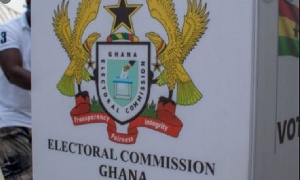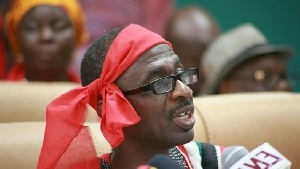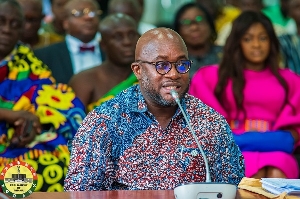Opinions of Sunday, 11 February 2024
Columnist: Isaac Ofori
Breaking the cycle: The imperative for real solutions in Ghana's political discourse
In the critical discourse surrounding Ghana's economic challenges, it is essential to approach the situation with logical scrutiny and a demand for substantive solutions.
The notion that electoral success hinges not on policy efficacy but on the economic dissatisfaction of the electorate underscores a deeper issue within Ghanaian politics. The claim by the NDC that Ghanaians will vote for them due to economic hardship, rather than the strength of their policy proposals, raises significant concerns about the party's readiness to address the nation's issues comprehensively.
It is surprising and somewhat disconcerting to observe some journalists endorsing the simplistic narrative that elections are won based on the electorate's financial hardships. This perspective dangerously suggests that there is little incentive for political parties to present real, actionable solutions to Ghana's economic problems.
Such a mindset undermines the democratic process, where informed decision-making and accountability should be paramount.
As Ghana edges closer to future elections, it becomes crucial for the electorate to demand more than mere rhetoric from the NDC or any party aspiring to govern. If the NPP's tenure is viewed as insufficient, a failure, and unprudent, the onus is on the NDC and any other political party to articulate clear, viable strategies for addressing the nation's challenges.
Merely capitalizing on public dissatisfaction without presenting a robust plan for economic recovery risks perpetuating a cycle of underperformance and experimentation that could further destabilize Ghana's economy.
Questions regarding how the NDC plans to tackle pressing issues like exchange rate instability, fuel prices, and inflation need to be asked with urgency. The electorate deserves detailed explanations on how the NDC intends to improve economic conditions beyond the superficial appeal to voter discontent.
The approach towards the 2024 elections should be one of rigorous scrutiny and demand for accountability from all political parties. Media houses and civil society organizations play a critical role in steering the national conversation toward substantive issues and away from the politics of vindictiveness and populism.
The upcoming elections present an opportunity to set a new precedent for political engagement in Ghana, where the focus is squarely on the presentation of concrete solutions to the country's enduring challenges.
The cyclical nature of Ghana's political and economic challenges since 1992 calls for a break from the past, demanding a new level of political maturity that transcends personal grievances and focuses on the national interest.
It's time for Ghana to demand more from its leaders, insisting on a roadmap for sustainable development that moves beyond the politics of acrimony and disappointment. The 2024 elections should not just be about choosing between the NDC and NPP; it should be about selecting a vision and a plan that can genuinely uplift Ghana from its current predicament.













